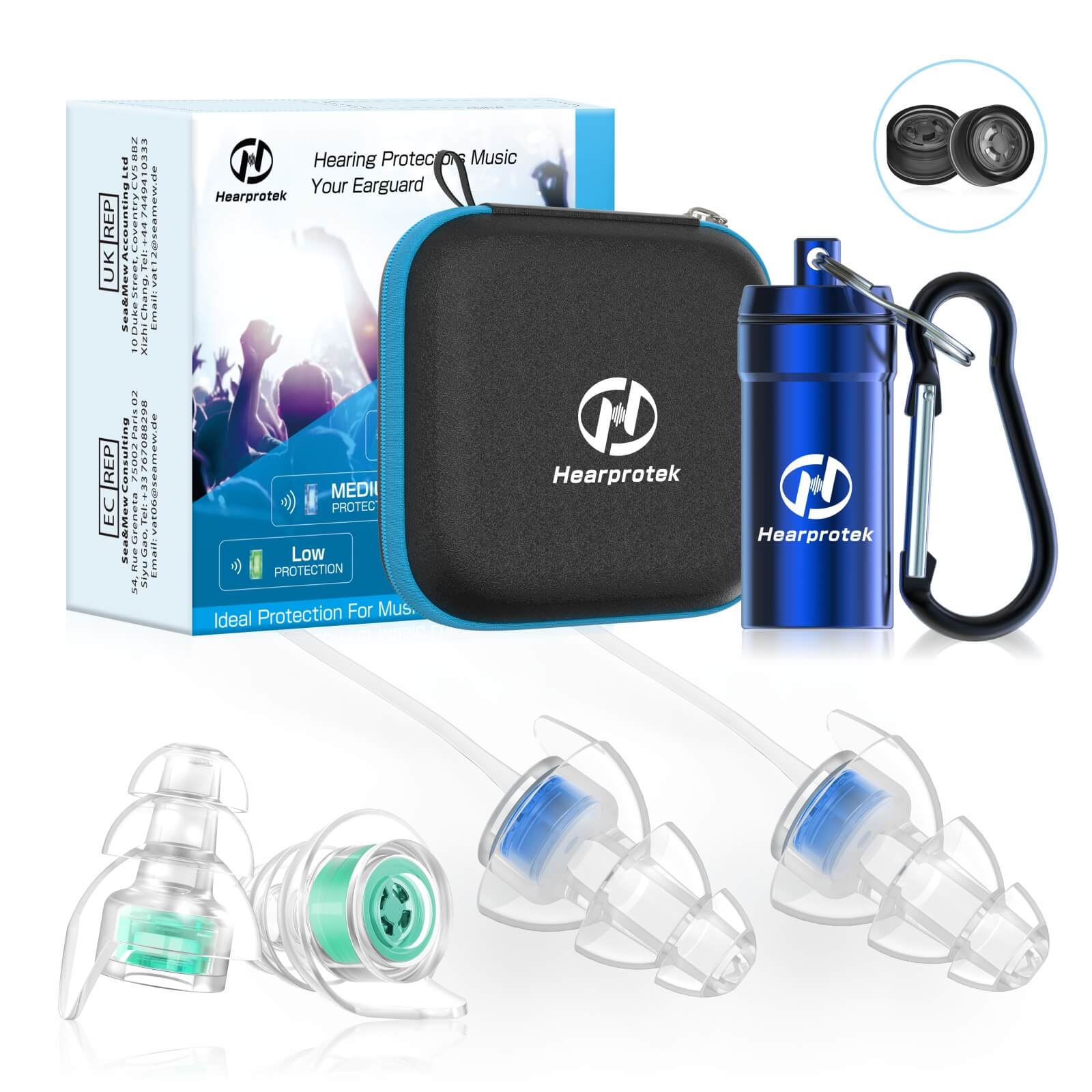Attending live shows and concerts can be an exhilarating experience, but it's important to protect your hearing from potential damage. The loud music and noise levels at these events can have a long-term impact on your hearing health. That's why it's crucial to invest in the best noise reduction ear plugs to safeguard your ears while enjoying the music.

The Importance of Protecting Your Hearing
Live shows and concerts are notorious for their high decibel levels, which can exceed 100 dB. Prolonged exposure to such loud noise can lead to permanent hearing loss and other auditory problems. According to the World Health Organization, over 1 billion young people are at risk of hearing loss due to recreational noise exposure, including attending concerts.
Avoiding hearing damage should be a top priority for concert-goers. By using the best noise reduction ear plugs, you can significantly reduce the risk of developing hearing problems in the future.
Choosing the Right Ear Plugs
When it comes to selecting the best ear plugs for concerts, there are several factors to consider:
1. Noise Reduction Rating (NRR)
The NRR indicates the effectiveness of ear plugs in reducing noise levels. Look for ear plugs with a high NRR, as they provide better protection against loud sounds. A higher NRR means more noise reduction, ensuring your ears are adequately shielded from the loud music at live shows.
2. Comfort and Fit
Comfort is key when wearing ear plugs for an extended period. Look for ear plugs made from soft and hypoallergenic materials that won't cause discomfort or irritation. Additionally, a proper fit is crucial for optimal noise reduction. Choose ear plugs that fit snugly in your ears without causing any pain or pressure.
3. Durability and Reusability
Investing in durable and reusable ear plugs is a wise choice. Not only will they last longer, but they also offer better value for money. Look for ear plugs that are easy to clean and maintain, ensuring they remain effective and hygienic for multiple uses.
4. Music Quality
While the primary purpose of ear plugs is to protect your hearing, it's essential to consider their impact on the music quality. Look for ear plugs specifically designed for musicians or concert-goers, as they are designed to reduce noise levels while maintaining the clarity and fidelity of the music.
Additional Precautions
While using the best noise reduction ear plugs is crucial, there are additional precautions you can take to further protect your hearing at live shows:
- Keep a safe distance from the speakers to minimize direct exposure to loud sound.
- Take breaks in quieter areas to give your ears a rest.
- Limit your overall exposure to loud noise by attending shorter concerts or events.
- Consider using noise-cancelling headphones in combination with ear plugs for added protection.
By incorporating these precautions into your concert experience, you can enjoy the music while safeguarding your hearing.
Conclusion
Attending live shows and concerts can be an incredible experience, but it's essential to prioritize your hearing health. Choosing the best noise reduction ear plugs is a proactive step towards preventing hearing damage and ensuring you can continue to enjoy music for years to come.
Remember, not all ear plugs are created equal. Consider factors such as noise reduction rating, comfort, durability, and music quality when selecting the right ear plugs for concerts. Additionally, take additional precautions like maintaining a safe distance from speakers and taking breaks to protect your hearing further.
For more information on hearing protection and the best noise reduction ear plugs, check out these credible sources:








